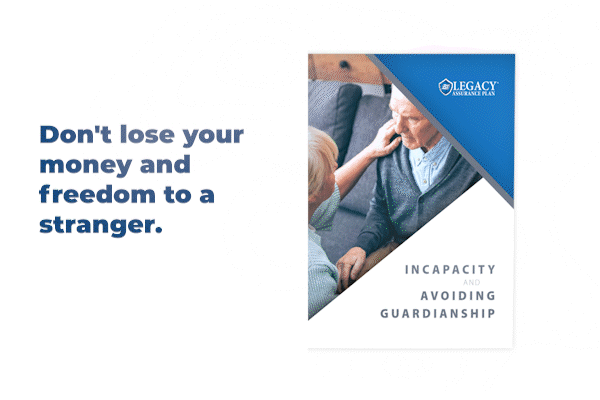Every year, thousands of vulnerable Americans lose their rights through guardianship proceedings that were designed to protect them. When courts appoint guardians to manage the affairs of individuals deemed incapable of making their own decisions, these arrangements can sometimes lead to devastating consequences if proper safeguards aren't in place. Investigations in New York and Florida have exposed alarming patterns of neglect, financial exploitation and systemic failures that leave our most vulnerable citizens at risk. As these troubling reports released in 2025 emerge from different regions of the country, they reveal not isolated incidents but a nationwide problem demanding attention.
What is guardianship and when is it established?
Guardianship is a legal arrangement where a court appoints someone (a guardian) to make personal and financial decisions for an individual (the ward) who is deemed incapable of managing their own affairs. This legal process typically begins when someone petitions the court claiming an individual can no longer make sound decisions regarding their health finances or daily care.
Courts may establish guardianship in various situations including:
- When a person develops dementia or other cognitive impairments.
- For adults with developmental disabilities or mental illness.
- Following severe injuries resulting in cognitive impairment.
- When no advance directives or powers of attorney exist during a crisis.


What is happening with America's guardianship system?
New York’s attorney general has launched an investigation into a half dozen guardianship organizations responsible for managing the health and financial affairs of hundreds of elderly and infirm New Yorkers deemed incapable of self-care. This investigation follows a yearlong ProPublica series that revealed how some guardians neglected vulnerable clients while others used their court-appointed positions to enrich themselves.
Meanwhile, Florida's auditor general identified 11 significant findings that demonstrate serious deficiencies in that state's guardianship oversight system. The audit of Florida's Office of Public and Professional Guardians (OPPG) found that the office had not developed an effective monitoring tool to ensure professional guardians complied with standards of practice designed to protect wards.
These parallel investigations highlight a troubling national pattern: Guardianship systems designed to protect vulnerable individuals are operating with minimal accountability, inadequate monitoring and insufficient resources.
Why is guardianship oversight troubled?

Failures in guardianship oversight stem from several key issues that include inadequate monitoring systems, overwhelmed court systems and a lack of transparency, investigations reveal.
In Florida, the OPPG relied on an optional self-monitoring questionnaire that many guardians didn't even complete. This lack of robust monitoring creates an environment where abuse can go undetected. The audit found that the OPPG neither compiled the self-reported information for analysis nor analyzed any submitted data for indications of noncompliance with standards of practice.
In New York, oversight of guardians is similarly scant, with officials rarely visiting wards to check on their care. Courts that appoint guardians rely largely on financial paperwork to determine a person's well-being, a dynamic that has resulted in fraud, abuse and neglect.
Overwhelmed court systems are another concern. The New York system has just 157 examiners responsible for reviewing reports of 17,411 New York City wards, and only about a dozen judges to check their work. As a result, annual assessments detailing wards' finances and care can take years to complete, depriving judges of critical information about people's welfare.
Florida's system faces similar challenges, with the audit revealing that complaints against guardians were not properly processed, investigations were delayed and complaint records were incomplete. For example, investigations related to serious allegations — such as guardians failing to pay for a ward's housing and basic needs or isolating wards from family — were initiated 16 to 28 business days after receipt of complaints, well beyond the required 10-day timeframe.
Also contributing to complaints is a lack of transparency. The Florida audit found that the OPPG failed to include all substantiated complaints and disciplinary actions in guardians' online profiles. In one striking example, a guardian had 15 substantiated complaints according to OPPG records, but only two were listed on the public website. This lack of transparency prevents the public from accurately assessing a guardian's fitness.
In New York, ProPublica found that though New York Guardianship Services (NYGS) presented itself as a nonprofit, it hadn't registered as such with state and federal authorities. This misrepresentation further complicates oversight and accountability.
How are vulnerable people affected by guardianship?

The consequences of inadequate guardianship oversight directly impact the quality of life for vulnerable individuals. For example, in New York, NYGS placed an elderly woman in a dilapidated home with rats, bedbugs and a lack of heat while collecting $450 monthly from her limited income, the investigation found. The company reported to the court that her living situation was "appropriate" despite internal records showing she repeatedly complained about the conditions. A judge eventually ordered NYGS to repay $5,400 in fees, noting the company provided "minimal services, if any."
In another New York case, NYGS collected monthly fees from an elderly man even after he left the country and continued billing after his death.
The Florida audit revealed similar concerns, with complaints against professional guardians including allegations of theft of ward property, mishandling of ward funds and financial exploitation. Without rigorous oversight, these abuses can continue unchecked.
The Florida audit also noted complaints against guardians for removing wards from their homes against their wishes, isolating them from family and friends and making decisions contrary to wards' expressed preferences. These actions can cause significant emotional harm and violate the principle that guardianship should be the least restrictive option.
How can abusive guardianships be prevented?

The risks associated with court-appointed guardianship underscore the importance of proactive planning. Properly drafted estate planning documents can allow you to designate trusted individuals to make decisions on your behalf. These documents include:
- Durable power of attorney. This vital document allows you to designate someone you trust to make financial decisions on your behalf if you become incapacitated. Unlike a court-ordered guardianship, you choose your representative and define their authority.
- Health care proxy or medical power of attorney. This enables you to appoint someone to make health care decisions for you when you cannot. You can include specific instructions about treatments you would accept or refuse.
- Living will or advance directive. This document outlines your wishes for end-of-life care, providing guidance to your health care proxy and medical providers.
- Revocable living trust. This arrangement allows you to transfer assets to a trust you control during your lifetime, with provisions for management if you become incapacitated and distribution after death – all while avoiding guardianship and probate proceedings.
Less restrictive alternatives to guardianship, such as supported decision-making arrangements, should be explored before pursuing full guardianship. These alternatives can preserve the individual's autonomy while providing necessary support.
Family members also should stay involved in the lives of loved ones under guardianship, visiting regularly and reviewing guardian reports. Any concerns about a guardian's conduct should be promptly reported to the court and relevant oversight agencies.
Conclusion
The investigations in New York and Florida highlight critical failures in our guardianship system that demand attention. Without rigorous oversight, transparent processes and adequate resources, the very system designed to protect vulnerable individuals can become an instrument of abuse and exploitation. Equally important is the promotion of less restrictive alternatives like supported decision-making arrangements that preserve individual autonomy while providing necessary assistance. For individuals and families, proactive estate planning — including powers of attorney, health care proxies, revocable living trusts and advance directives — remains the best defense against unwanted guardianship. Evidence from across the country serves as a clarion call for policymakers, courts and communities to work together to transform a broken system into one that truly protects our most vulnerable citizens while respecting their dignity and rights.



